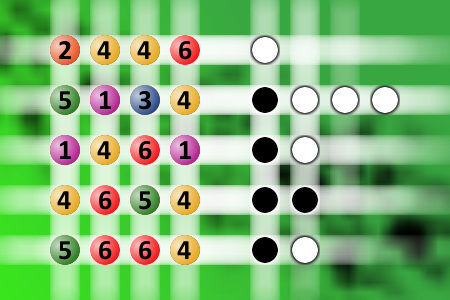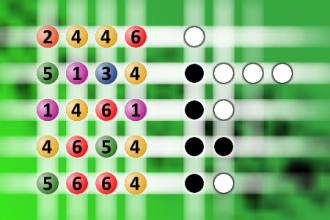What a winning combination?
The computer chose a secret code (sequence of 4 digits from 1 to 6). Your goal is to find that code. Black circles indicate the number of hits on the right spot. White circles indicate the number of hits on the wrong spot.Correct answers: 30
The first user who solved this task is Nasrin 24 T.
#brainteasers #mastermind

A drunk walks into a crowded b...
A drunk walks into a crowded bar and takes the last barstool next to an older woman. After awhile, the woman starts to smell this horrible odor coming from the direction of the drunk. She turns to him and says, "Excuse me Mister, but did you just shit yourself?" The drunk replied, "Yes ma'am, I have indeed shit myself." The woman says, "Well, why don't you go somewhere and clean yourself up?"
The drunk says, "'Cause I'm not finished yet..."

